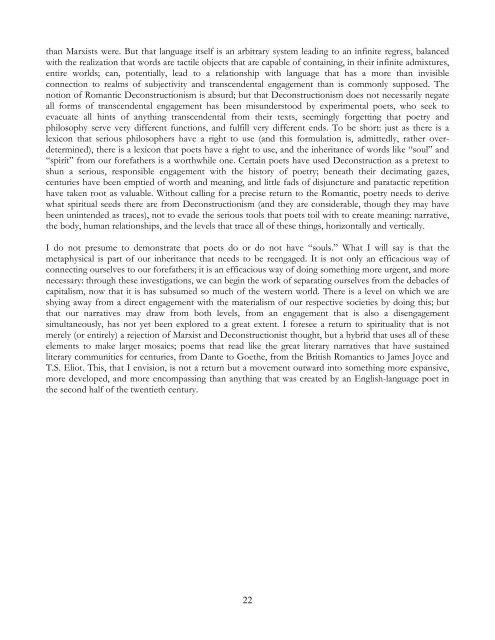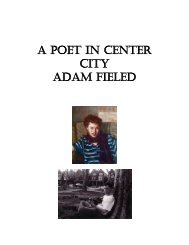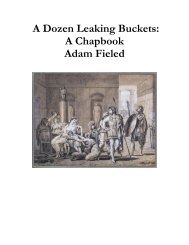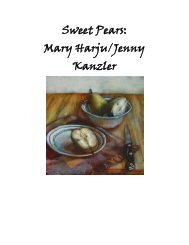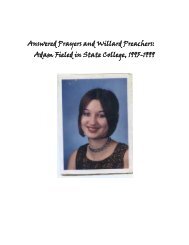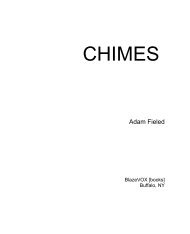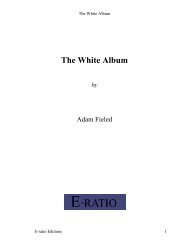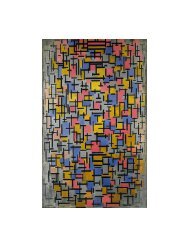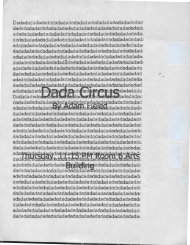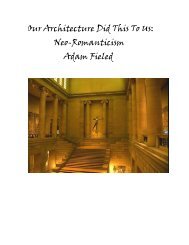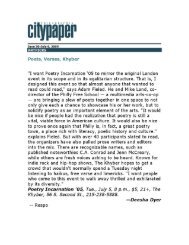3 E-Books: The Argotist Online
These three Adam Fieled collections, The Posit Trilogy, Mother Earth, and Disturb the Universe: The Collected Essays of Adam Fieled, were released in e-book form by The Argotist Online, in 2017, 2011, and 2010, respectively.
These three Adam Fieled collections, The Posit Trilogy, Mother Earth, and Disturb the Universe: The Collected Essays of Adam Fieled, were released in e-book form by The Argotist Online, in 2017, 2011, and 2010, respectively.
Create successful ePaper yourself
Turn your PDF publications into a flip-book with our unique Google optimized e-Paper software.
than Marxists were. But that language itself is an arbitrary system leading to an infinite regress, balanced<br />
with the realization that words are tactile objects that are capable of containing, in their infinite admixtures,<br />
entire worlds; can, potentially, lead to a relationship with language that has a more than invisible<br />
connection to realms of subjectivity and transcendental engagement than is commonly supposed. <strong>The</strong><br />
notion of Romantic Deconstructionism is absurd; but that Deconstructionism does not necessarily negate<br />
all forms of transcendental engagement has been misunderstood by experimental poets, who seek to<br />
evacuate all hints of anything transcendental from their texts, seemingly forgetting that poetry and<br />
philosophy serve very different functions, and fulfill very different ends. To be short: just as there is a<br />
lexicon that serious philosophers have a right to use (and this formulation is, admittedly, rather overdetermined),<br />
there is a lexicon that poets have a right to use, and the inheritance of words like “soul” and<br />
“spirit” from our forefathers is a worthwhile one. Certain poets have used Deconstruction as a pretext to<br />
shun a serious, responsible engagement with the history of poetry; beneath their decimating gazes,<br />
centuries have been emptied of worth and meaning, and little fads of disjuncture and paratactic repetition<br />
have taken root as valuable. Without calling for a precise return to the Romantic, poetry needs to derive<br />
what spiritual seeds there are from Deconstructionism (and they are considerable, though they may have<br />
been unintended as traces), not to evade the serious tools that poets toil with to create meaning: narrative,<br />
the body, human relationships, and the levels that trace all of these things, horizontally and vertically.<br />
I do not presume to demonstrate that poets do or do not have “souls.” What I will say is that the<br />
metaphysical is part of our inheritance that needs to be reengaged. It is not only an efficacious way of<br />
connecting ourselves to our forefathers; it is an efficacious way of doing something more urgent, and more<br />
necessary: through these investigations, we can begin the work of separating ourselves from the debacles of<br />
capitalism, now that it is has subsumed so much of the western world. <strong>The</strong>re is a level on which we are<br />
shying away from a direct engagement with the materialism of our respective societies by doing this; but<br />
that our narratives may draw from both levels, from an engagement that is also a disengagement<br />
simultaneously, has not yet been explored to a great extent. I foresee a return to spirituality that is not<br />
merely (or entirely) a rejection of Marxist and Deconstructionist thought, but a hybrid that uses all of these<br />
elements to make larger mosaics; poems that read like the great literary narratives that have sustained<br />
literary communities for centuries, from Dante to Goethe, from the British Romantics to James Joyce and<br />
T.S. Eliot. This, that I envision, is not a return but a movement outward into something more expansive,<br />
more developed, and more encompassing than anything that was created by an English-language poet in<br />
the second half of the twentieth century.<br />
22


